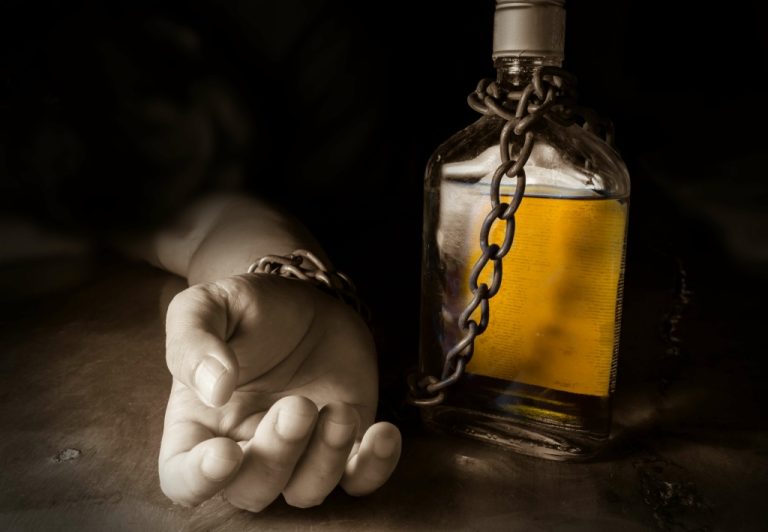Why do people like being tipsy? Here’s how alcohol affects the brain
Well, brace yourself as we dive into the somewhat squiffy world of alcohol and explore what being drunk really feels like. The stages range from sobriety to potential death, with each stage characterized by specific emotional and physical symptoms. Neurotransmitters like dopamine and endorphins are released, creating a mild buzz. People who are tipsy often feel more sociable, lively, and uninhibited. They experience fun sensory effects, feelings of contentment, and lowered stress.
Reach out now
- Tipsy drinkers minimize guilt in CAGE questions despite experiencing remorse later.
- Alcohol, master of disguise that it is, can make us feel invincible.
- Alcohol also increases GABA, which calms the brain, and decreases glutamate, an excitatory neurotransmitter.
- It can be considered that being ‘tipsy’ is the middle ground of considering oneself when it comes to drinking alcohol.
- It can start as young as high school, with parties, increase with events in college, and continues into adulthood with alcoholic drinks regularly provided at most social gatherings.
- Drinking too much alcohol can lead to alcohol poisoning and even death.
Regular Twelve-step program heavy drinking can also contribute to the development of alcohol dependence and addiction. If you don’t drink often, be aware that alcohol will likely affect you more than someone who does drink regularly. For some people, it is helpful to stop drinking when they start feeling tipsy or are in the euphoric stage.
Treatment Can Be Life Changing. Reach out today.
But using these tips can help mitigate the feelings of tipsiness more quickly. You might start to feel dizzy, have trouble walking straight, and your thinking gets all fuzzy. The fun and happy feelings of being tipsy can turn into not-so-great stuff, like feeling sick or doing things you might regret later. Your body functions will slow so much that you will fall into a coma, putting you at risk of death. In summary, being buzzed causes milder impairment than being drunk.
Individual Alcohol Tolerance
It’s crucial to ensure this doesn’t cross the line into overconfidence or recklessness. Consider using Reframe’s drink tracker to monitor your consumption and stay aware of your limits. While the feeling can be subjective, there are some telltale physical signs your body might be exhibiting. Recognizing these early indicators can help you make informed decisions about your drinking. Being under the influence of alcohol in any capacity also affects our judgment and our ability to make decisions. For example, this could mean that we find ourselves doing things we wouldn’t normally do, such as driving drunk, getting into arguments or fighting with people we care about.

It can be considered that being ‘tipsy’ is the middle ground of considering oneself when it comes to drinking alcohol. If you are concerned about your alcohol use, it’s crucial to seek professional help. Alcohol affects the brain by enhancing GABA (calming neurotransmitter) and decreasing glutamate (excitatory neurotransmitter), leading to depressive effects. It also activates the brain’s reward center, releasing dopamine, which contributes to feelings of pleasure and reinforces drinking behavior. At a BAC level of 0.45% or greater, severe and irreversible damage is sustained to the internal organ systems.
- The ten-year data from 2014 to 2023 shows an average of 11,000 annual drunk-driving deaths.
- Getting drunk and losing control can be scary, but treatment is available.
- Genes can also contribute to alcohol addictions in some people.
- Body weight and metabolism play a significant role in how alcohol affects an individual.
- Alcohol can lower inhibitions, making it easier to connect with others and potentially deepening conversations.
Recognizing this impaired judgment is essential for making responsible choices while drinking. Learn more about the effects of alcohol and how to manage your drinking with Reframe’s educational resources. That slight buzz you feel after a couple of drinks can significantly change how you act and feel. While it might seem like harmless fun, understanding these shifts is key to responsible drinking. Let’s explore how tipsiness affects your what does being tipsy feel like social interactions, confidence levels, and decision-making. It’s that fuzzy, in-between zone where you’re not quite sober, but not fully drunk either.
You think, “wow, I’m actually a super good dancer”, and you continue to dance while spilling the drinks of everyone within arm’s reach. The dancing does not cease until you catch the eye of the cutie over at the bar at which point you reach stage number 5. This is the point in the night where conversations reach their peak volume. Suddenly everybody in the bar is your new best friend and you are https://dev-arora-digital.pantheonsite.io/manuals-oxford-houses-of-virginia-6/ dying to tell them your life story. Not realizing how drunk you actually are, you promise to stay in touch, take your new BFF’s phone number, and head to the bathroom where you forget about him/her forever.

About Medical News Today
When a person begins to consume larger amounts at a faster pace, their body is not able to filter it out as effectively. This may cause them to pass through euphoric and depressive phases rather quickly and enter into more dangerous levels of intoxication. If this pattern of drinking continues for long periods of time, the body is going to adapt to the levels of alcohol consumed. At the same time, the structure and function of nerves within the brain are going to change. According to the National Highway Traffic Safety Administration (NHTSA), drunk driving caused 12,429 deaths in 2023.
Factors such as body weight, metabolism, and alcohol tolerance can influence how alcohol is processed in your body. It’s crucial to be aware of your own limits and to avoid exceeding them. Long-term excessive drinking can lead to chronic health problems such as liver disease, cardiovascular issues, and mental health disorders.
Speech can become slurred, coordination significantly impaired, and decision-making questionable. Understanding these stages can help you recognize where you are on the spectrum and make informed choices about your drinking. Consuming large amounts of alcohol or engaging in binge drinking behaviour can also lead to long-term physical health complications.



